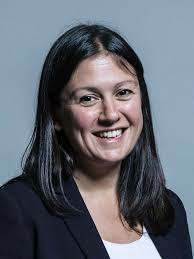Lisa Nandy – 2020 Speech on the Global Human Rights Sanctions Regime
Below is the text of the speech made by Lisa Nandy, the Shadow Foreign Secretary, in the House of Commons on 6 July 2020.
May I start by strongly welcoming this statement and the advance sight of it? It has been, as Bill Browder rightly said, a long and difficult journey to persuade the Government to take this step. I know that it has been personally frustrating for the Foreign Secretary to be repeatedly challenged by me over recent weeks about the delays when he has spent the last eight years as its champion. For too long the UK has been a haven for those who use corruption, torture and murder to further their own ends. Today, I hope, sends a strong message that the UK is not their home and that their dirty money is not welcome here.
I pay tribute, too, to Sergei Magnitsky and his family, who have waited far too long for this day. Magnitsky worked for a British company, and it is right that, today, in his honour, we start to clean up the global corruption that he exposed and that cost him his life. I also put on record our support for ensuring that some of those responsible for his murder are the first to face consequences. The time for action against Russian Government officials who oppress LGBT people, Muslims and other minorities and who use chemical weapons on the streets of the UK is long overdue. This is a profound act of solidarity with the Russian people over those who have made their lives a misery for far too long.
I welcome, too, the Foreign Secretary’s action against those involved in the appalling murder of Jamal Khashoggi. I gently say to him that, although today is not the day for sparring across the Dispatch Box, it would be welcome if it marked the start of a more consistent approach from the Government towards Saudi Arabia, and in particular the arms sales from this country that are being used to harm innocent civilians in Yemen.
Similarly, we are grateful to the Foreign Secretary for including the Rohingya in Myanmar in today’s announcement. I hope that he will use his new remit to consider why the UK investment arm, CDC, continues to invest in those who are complicit in silencing people who speak out against human rights abuses in Myanmar.
I welcome the inclusion of trafficking in the measures; the former Member for Bishop Auckland would be delighted to see that, as the Government have previously resisted it. I express serious concern, however, that the Foreign Secretary has not yet been able to persuade his colleagues of the need to include corruption in scope. Corruption and human rights abuses go hand in hand and that must be urgently resolved. The former Prime Minister, David Cameron, expressed regret that he had not acted on the issue earlier:
“I soon realised…the advantages of working together—with other countries—under a common heading…You get extra clout from coming together across the world and saying with one voice to those who are responsible for unacceptable acts: ‘We are united’”
The Foreign Secretary mentioned the USA and Canada and our desire to stand closely with them. They have included corruption in scope and the UK must follow suit.
Can the Foreign Secretary confirm that the measures apply to UK overseas territories and Crown dependencies? We must not create a back door that allows the laundering of blood money in the United Kingdom.
Will all names be published, including those subject to visa bans? I am sorry to do this to the Foreign Secretary, but I refer him to his earlier words. As he put it:
“If we are dealing with people who are complicit in torture and there is enough evidence to substantiate and justify a visa ban, what possible countervailing reason can there be, whether it is to change their behaviour or otherwise, for not making their name public? Would not making their name public deter others?”—[Official Report, 2 April 2014; Vol. 578, c. 300-301WH.]
He also tabled an amendment to the Criminal Finances Act 2017 seeking a public register of people who are subject to such orders, and he rightly set out in that amendment to ensure that third parties could refer to the list. We agree with him. There must be a clear mechanism for civil society to refer in line with the criteria. Can he give us an assurance that that will be forthcoming?
Similarly, will the Foreign Secretary reflect on arrangements in the United States that provide a congressional trigger and allow our Select Committee Chairs to make referrals to the list as well? I can see that the Chair of the Foreign Affairs Committee is nodding; I would expect him to agree with that suggestion. I hope that the Foreign Secretary will agree too.
Finally, as the Foreign Secretary has long championed, we must have transparency in the process. There has been serious concern about the influence of big money on politics. It is essential that there is independent oversight of the list to ensure that nobody can buy their way out of British justice. Will he commit to parliamentary scrutiny of the list and the way that decisions are taken? I know that he will face resistance from colleagues, but we will strongly support him in that endeavour.
Today is a day that we stand up against corruption and dirty money and for our values with the full support of this House. There can be no ambiguity and no double standards. The UK must lead the way at home and abroad.

